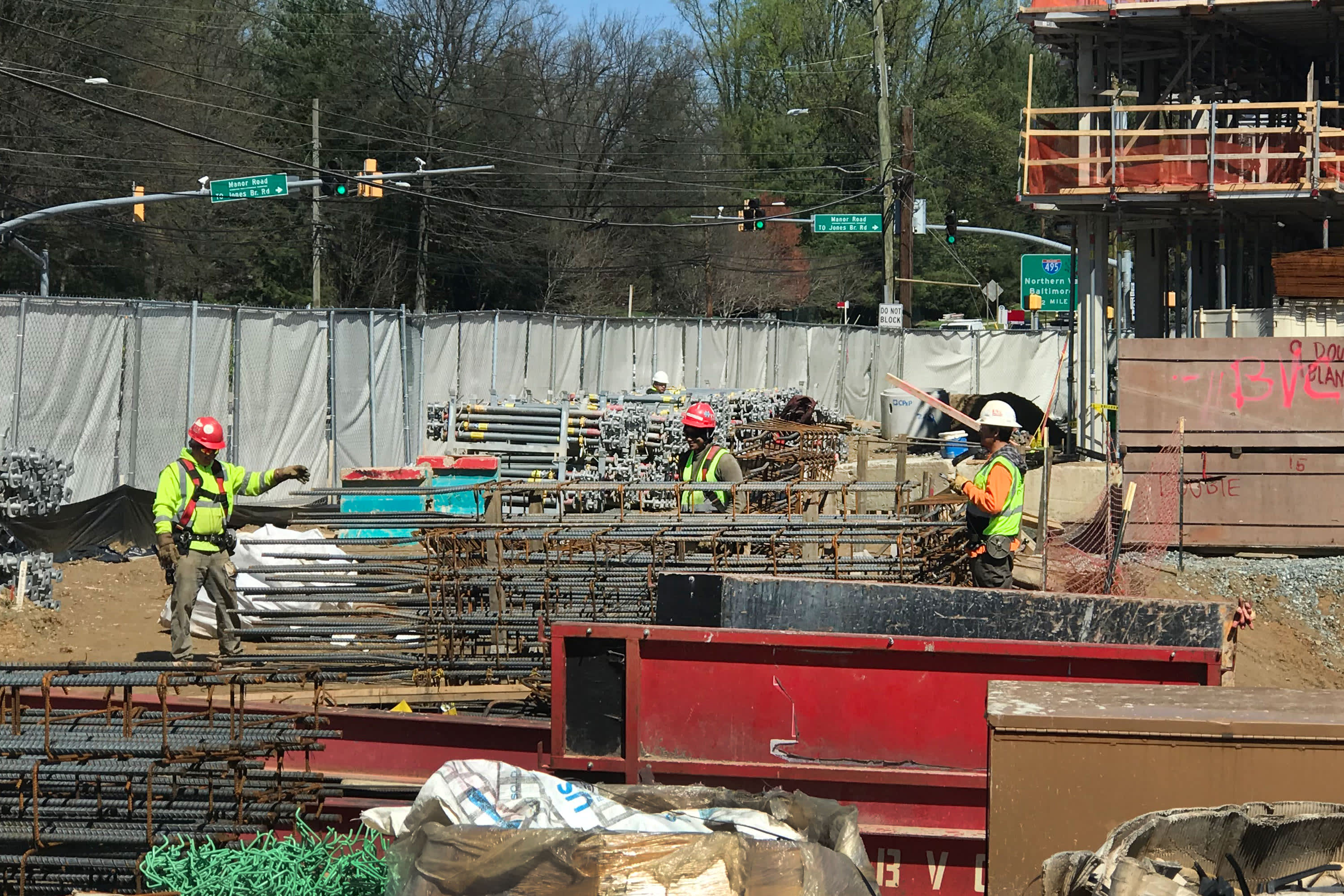Workers at a Bozzuto multifamily job site in Chevy Chase, MD.
Diana Olick | CNBC
Construction has been deemed essential by the federal government, but a growing number of residential construction workers are pulling back, worried about catching the coronavirus.
While overall construction employment fell in March, according to the Bureau of Labor Statistics, residential construction added 2,000 jobs.
It remains to be seen how long that will last.
In its second weekly survey of residential homebuilders, conducted from March 24 to March 31, the National Association of Home Builders found 64% of respondents cited problems with the willingness of workers and subs to report to a construction site up from 42% a week earlier.
At a multifamily development in Chevy Chase, Maryland, by Bozzuto Group, some workers are wearing masks, and the company’s CEO says they are taking every precaution against coronavirus.
“One of the benefits of construction is a lot of it is outside, and the men and women are very far apart,” said Toby Bozzuto. “These are people that are accustomed to being in a risky workplace. They have followed safety standards and updated protocol perhaps better than any of us because in a sense that it’s part of their DNA.”
Bozzuto Group has $500 million worth of construction underway and $1 billion in its 12-month pipeline. It has had to halt some operations in Pennsylvania, one of four states that has shut down construction, but is operating on schedule on most of its projects. Bozzuto is passionate about the need to keep building housing, even during the pandemic.
“Keeping construction going is essential to our economy in so many ways. Shelter is as critical as food and water. So we need to continue building so that there’s not a shortage of housing downstream, particularly affordable housing,” he said.
He also points to the economic benefits of when sites are being built, such as payment of permit fees and inspection fees that create revenue for counties that are going to desperately need money.
“You have lower income taxes coming in most likely because of this crisis, and you have higher expenses for the counties, so it’s wonderful that we can contribute to the economy in that way,” he said.
The construction industry has been up against a severe labor shortage for several years, which has slowed the production of much-needed housing. Housing starts had been climbing slowly but were still not at even historical levels from before the last recession.
The housing shortage was worsening at the start of this year due to high demand. Adding to the strain, would-be sellers are now pulling their listings from the market. New construction is short about 350,000 units when compared with household formation, according to the Urban Institute’s Laurie Goodman.
Construction of single and multifamily housing units is expected to decline now, as the economy stalls in the face of the coronavirus epidemic. Single-family homebuilders don’t want to be stuck with supply they can’t sell, and some multifamily projects are now facing trouble with funding. Sites that were already underway, however, seem to be going forward.
Said Mackie Jenkins, a concrete superintendent at the Bozzuto site in Chevy Chase: ”We’ve got gloves and goggles. We’re technically covered more than the average person on a construction site. … I’ve got bills to pay like everybody else. I want to work!”

